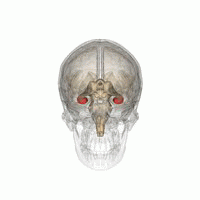Memory improvement
(Redirected from Memory training)
Methods and techniques to enhance memory
Memory improvement refers to techniques and strategies aimed at enhancing an individual's ability to encode, store, and retrieve information. Memory is a complex cognitive process that involves various brain regions, including the hippocampus, prefrontal cortex, and amygdala. Improving memory can be beneficial for academic performance, professional success, and overall quality of life.
Techniques for Memory Improvement[edit | edit source]
There are several methods and strategies that individuals can employ to improve their memory. These techniques can be broadly categorized into lifestyle changes, cognitive exercises, and mnemonic devices.
Lifestyle Changes[edit | edit source]
Lifestyle factors play a significant role in memory function. Key lifestyle changes that can enhance memory include:
- Diet and Nutrition: Consuming a balanced diet rich in omega-3 fatty acids, antioxidants, and vitamins can support brain health. Foods such as fish, nuts, and berries are particularly beneficial.
- Exercise: Regular physical activity increases blood flow to the brain and promotes the growth of new neurons, particularly in the hippocampus.
- Sleep: Adequate sleep is crucial for memory consolidation, the process by which short-term memories are transformed into long-term memories.
- Stress Management: Chronic stress can impair memory. Techniques such as meditation, yoga, and deep breathing can help reduce stress levels.
Cognitive Exercises[edit | edit source]
Engaging in activities that challenge the brain can improve memory. These include:
- Puzzles and Games: Activities like crossword puzzles, Sudoku, and chess stimulate cognitive function.
- Learning New Skills: Acquiring new skills, such as learning a musical instrument or a new language, can enhance memory and cognitive flexibility.
- Memory Training Programs: Structured programs designed to improve specific memory skills can be effective.
Mnemonic Devices[edit | edit source]
Mnemonic devices are techniques that aid in the retention and retrieval of information. Common mnemonic strategies include:
- Acronyms and Acrostics: Creating acronyms or acrostics to remember lists or sequences.
- Visualization: Associating information with vivid mental images.
- Chunking: Breaking down large pieces of information into smaller, manageable units.
- Method of Loci: Associating information with specific locations in a familiar environment.
Memory and Aging[edit | edit source]
As individuals age, memory function can decline. However, engaging in memory improvement techniques can help mitigate age-related memory loss. Older adults are encouraged to maintain an active lifestyle, engage in social activities, and continue learning to preserve cognitive function.
Memory Disorders[edit | edit source]
Memory disorders, such as Alzheimer's disease and dementia, significantly impact memory function. While memory improvement techniques cannot cure these conditions, they may help slow progression and improve quality of life.
Related Pages[edit | edit source]
Conclusion[edit | edit source]
Memory improvement is a multifaceted approach that involves lifestyle changes, cognitive exercises, and mnemonic devices. By adopting these strategies, individuals can enhance their memory and cognitive abilities, leading to improved performance in various aspects of life.
Search WikiMD
Ad.Tired of being Overweight? Try W8MD's physician weight loss program.
Semaglutide (Ozempic / Wegovy and Tirzepatide (Mounjaro / Zepbound) available.
Advertise on WikiMD
|
WikiMD's Wellness Encyclopedia |
| Let Food Be Thy Medicine Medicine Thy Food - Hippocrates |
Translate this page: - East Asian
中文,
日本,
한국어,
South Asian
हिन्दी,
தமிழ்,
తెలుగు,
Urdu,
ಕನ್ನಡ,
Southeast Asian
Indonesian,
Vietnamese,
Thai,
မြန်မာဘာသာ,
বাংলা
European
español,
Deutsch,
français,
Greek,
português do Brasil,
polski,
română,
русский,
Nederlands,
norsk,
svenska,
suomi,
Italian
Middle Eastern & African
عربى,
Turkish,
Persian,
Hebrew,
Afrikaans,
isiZulu,
Kiswahili,
Other
Bulgarian,
Hungarian,
Czech,
Swedish,
മലയാളം,
मराठी,
ਪੰਜਾਬੀ,
ગુજરાતી,
Portuguese,
Ukrainian
Medical Disclaimer: WikiMD is not a substitute for professional medical advice. The information on WikiMD is provided as an information resource only, may be incorrect, outdated or misleading, and is not to be used or relied on for any diagnostic or treatment purposes. Please consult your health care provider before making any healthcare decisions or for guidance about a specific medical condition. WikiMD expressly disclaims responsibility, and shall have no liability, for any damages, loss, injury, or liability whatsoever suffered as a result of your reliance on the information contained in this site. By visiting this site you agree to the foregoing terms and conditions, which may from time to time be changed or supplemented by WikiMD. If you do not agree to the foregoing terms and conditions, you should not enter or use this site. See full disclaimer.
Credits:Most images are courtesy of Wikimedia commons, and templates, categories Wikipedia, licensed under CC BY SA or similar.
Contributors: Prab R. Tumpati, MD




